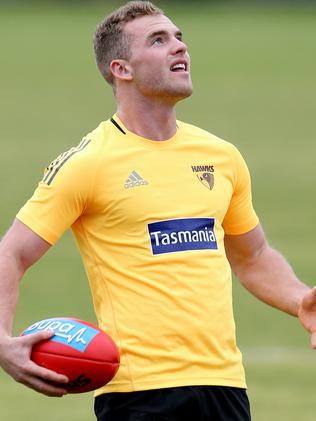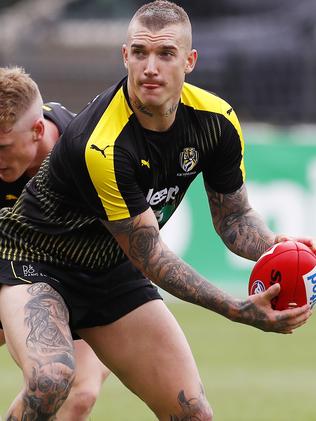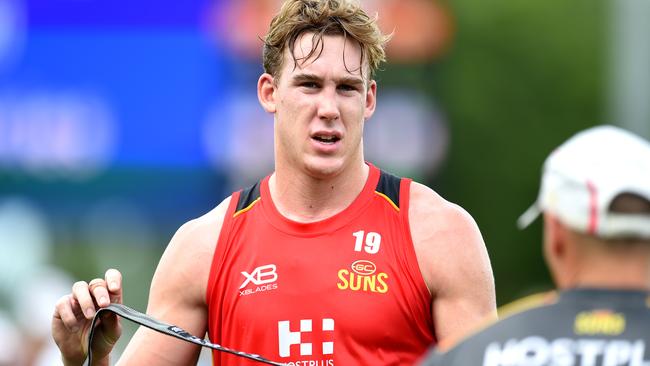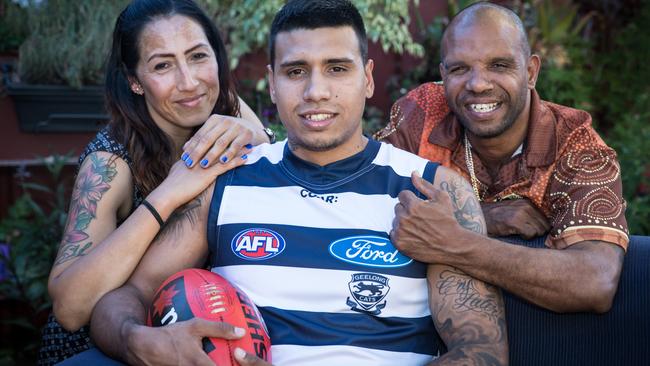SuperCoach 10 commandments: The golden rules to building a winning team
HOW do you take your SuperCoach team from good to great? From tips on picking the right rookies to the selection traps to avoid, here are the 10 golden rules to SuperCoach success.
BEING good at SuperCoach is easy; being great at SuperCoach is infinitely more difficult.
Luckily for me, SuperFooty has only asked me to make a guide to being good at SuperCoach so I’ll be keeping the secret to winning the $50K prize to myself … actually, the secret is luck. But you can set yourself up to be in a winning position with the following 10 SuperCoach tips and, who knows, maybe you’ll be the lucky one in 2018.
MORE EXPERT TIPS: THE PHANTOM’S MIDFIELD FAVOURITES
STRATEGY: HOW MANY SUPERCOACH SUPERSTARS IS TOO MANY?
PRE-SEASON FORM: ULTIMATE JLT SUPERCOACH SCOUTING REPORT
For the ease of your consumption, I’ve broken down the following tricks and tips into three easy to remember SuperCoach rules: Score points. Generate cash. Trade wisely.
SCORE POINTS
This is the key SuperCoaches, you can’t win without scoring big every week. Here’s how you can do just that.
1. PICK PLAYERS WHO WILL PLAY EVERY WEEK
If you’re picking a player for your team then they need to be durable and consistently playing. It’s all well and good for Gary Ablett to average 114 points per game but if he’s only on the park for 14 games then you’re not getting the return you need.
Patrick Dangerfield, Dustin Martin, Tom Mitchell, Josh Kelly and Clayton Oliver all played at least 21 games in 2017, this is the type of consistency you should be targeting when selecting your team.
2. PICK A PERMA-CAPTAIN
Every round you must select a player from your side as captain. This player will have his score doubled for the week, and it’s vital that your captain can go big.
Luckily, there are a few players who we can count on to do this — Patrick Dangerfield averaged 136 points per game in 2017 and had 16 games in which he scored 138 or more. Tom Mitchell scored more than 100 in 20 of his 22 games. These are the guys we consider “perma-captains” because you can whack the C on them and you know you’ll get a good return. Make sure you have at least one or two in your starting line-up.


3. PICK PLAYERS WHO HAVE DONE IT BEFORE
The temptation for every SuperCoach out there is to find the next big thing, the next breakout superstar. If you want to mitigate as much risk as possible in your SuperCoach side, don’t look for the next superstar, pick someone who has already shown they can produce elite scores.
Patrick Dangerfield (his name is coming up a lot), Rory Sloane, Nat Fyfe, Kade Simpson and Rory Laird are all examples of guys who have been consistently good for a number of years. Pick players with this sort of history.
4. DON’T PICK KEY-POSITION PLAYERS
I loved watching Liam Jones when he averaging 90 points per game across his first four matches last year, but that didn’t mean I was going to select him.
Key forwards and key backs are notoriously bad at SuperCoach with very few exceptions. They lack consistency and seem to always let you down at the worst possible time. Save yourself the pain of having Tom lynch score 50 points in your work league’s elimination final and don’t pick key position players.

5. DON’T PICK PLAYERS WHO YOU HAVE TO JUSTIFY
This can mean justification to yourself or others. If you think that someone is a good selection but only if he has a positional change AND there’s an injury to a teammate that creates more opportunities AND there needs to be a solar eclipse AND you only plan on fielding him every second week … maybe don’t pick that guy.
Simply put, if you ask a friend about a player and they stare at you with a blank expression on their face, don’t select that player.
GENERATE CASH
The second element to selecting a successful SuperCoach team is cash generation.
Every player has a “break-even” — this is the score they need to hit to maintain their price value. Prices are calculated on a three-week rolling average so a player’s value will only change after playing their third game. If the player scores well above their break-even they will jump in value and if they score well below their break-even they’ll fall in value.
Obviously, you want your cheaper players to increase in value so that you can trade them for better and more expensive players. Your team will need to increase in total value quite significantly throughout the season if you’re going to end up at the top of the table.
How do you make that happen?
6. PICK CHEAP ROOKIES WHO WILL PLAY
The easiest way to add value to your team is by picking rookies who will play and increase in value quickly. If a rookie can score above their price point they’ll very quickly increase in price and you’ll be able to move them on for a gun that has dropped in price.
A $123,900 player starts with a break-even of just 23 which good rookies can eclipse easily — last year Sam Powell-Pepper averaged 68 points over his first eight games and increased in value by more than $175,000.
The best way to identify which rookies to select is to watch them in the JLT Series. If they are getting game time and look like they can play at AFL level then they’ll likely get enough games throughout the year.
It’s also worth noting that if a rookie isn’t named in Round 1, he’s probably not worth picking.

7. PICK ROOKIES IN PREFERABLE POSITIONS
This one is fairly simple — some positions generate more cash than others for rookies. If you can, pick rookies who are playing predominantly through the midfield or off halfback. A key-position rookie or a small forward probably isn’t going to generate the cash you need.
HOW TO PLAY: BEGINNER’S GUIDE TO SUPERCOACH
8. BEWARE THE EXTENDED BENCH, ESPECIALLY IN ROUND 1
AFL coaches will hurt you, they will crush your soul and will lose you your head-to-head match. They’ll do this by naming rookies on the extended bench on Thursday when you need to know what they’ll be doing on Sunday. Don’t rely on your rookies playing, assume that they won’t and plan accordingly.
Round 1 can be a killer, make sure that at the very least your on-field rookies are named in the starting side on Thursday night. That means starting 18 for teams playing on Sunday: GWS, Bulldogs, Melbourne, Geelong, West Coast and Sydney — a lot of teams with popular rookies. Try to limit players named on the extended bench to your SuperCoach bench, then you won’t have to cry yourself when they don’t play.
TRADE WISELY
You have 30 trades for the season and some will be needed when starting players are injured. But most should be used to improve your squad, gradually replacing the cheapies you pick before Round 1 with higher-scoring players.
9. TRADE ROOKIES WHEN THEIR AVERAGE IS AROUND THEIR BREAK-EVEN
When rookies begin to average around their break-even more times than not they have reached peak value.
This is the perfect time to downgrade them to a rookie on the bubble (a cheap player who has played two games and is about to jump in value) or to upgrade them to a premium player (preferably one who is cheaper than their starting price).
10. AVOID TRADING PREMIUM SELECTIONS
There are only two occasions in which you should consider trading one of your high-priced starting picks: the player is injured or the player has had a permanent role change.
Not all injuries will require a trade, but if a player is going to miss more than two weeks with injury then it might be worth using up a trade.
A role change is much harder to identify than an injury, but if it becomes apparent that a player you selected has had a role change for the worse, you should move him along. For example, if you pick someone to run off halfback but he gets turned into a tagger and his scoring dries up.
A bad score or two is not a good reason to burn a trade, especially early in the season. Back your starting selections — remember you picked them for a reason. Every failed SuperCoach has a story about trading out a star player the week before they came good.
Well that’s it, with these 10 tips you should be set up for a successful SuperCoach season in 2018.
There will be circumstances where you turn to these words of wisdom and you’ll think, “why is none of this helpful? My team is awful and I blame Lekdog!” And when you do I’ll be here, ready to offer some assistance and a gentle hug.
Check me out on Twitter @lekblog and the Jock Reynolds Fantasy Community



